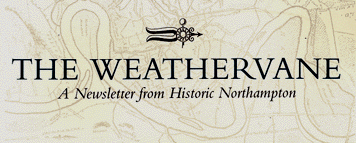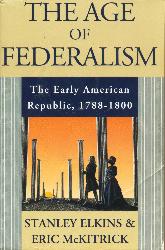

|


Weathervane Newsletter Winter 2001

Book Review: The Partisan Patriarchs
The Age of Federalism: The Early American Republic, 1788-1800. by Stanley Elkins and Eric McKitrick. (New York: Oxford University Press, 1993. 925 pp. Paper, $19.95, ISBN 0-19-509381-X)
The election of 2000 will likely provoke scholarly debate for generations of historians, let alone pundits and news analysts. Those who view the level of partisanship and political maneuvering in this election as an anomaly, however, would do well to ponder the origins of partisan politics in the very foundations of our republic.
Winner of the Bancroft Prize, The Age of Federalism was written by seasoned scholars who know what they mean and say it with eloquence and wit. Though at 925 pages, readers should not be daunted. Elkins and McKitrick have managed to convey the vitality of the most intricate of issues. They show us that Madison and Hamilton's clashes on finance, for example, were ideological battles for the very soul of America. In the authors' hands the debates over the tonnage bill and the assumption of state debts become page turners. We are also treated to finely written portraits of the principal players that are biting, funny, sharply drawn little masterpieces of political biography that evoke the best of Richard Hofstadter.
It is illuminating to read of the vituperative newspaper war of 1792 that could teach Lee Atwater a thing or two, or of the Treasury investigation- the Whitewater of 1793. And yes, gentle reader; election fraud rears its head, even in the infant republic. This is not to say that there are not vast differences in the political demographics between that era and ours. But when we hear much talk about bipartisanship after a particularly bloody election, it is instructive to remember that conflict is, and always was, at the very heart of our political process.
Following the recent disputed election, George W. Bush quoted Thomas Jefferson's remarks after the bitter election of 1800 as a gesture of conciliation. "We are all republicans - we are all federalists," Jefferson said. But Elkins and McKitrick show us that Jefferson really meant that his election paved the way for the victory of his political vision- a vision that would be embraced even by his opponents. "I shall," he wrote Horatio Gates, "by the establishment of republican principles...sink federalism into an abyss from which there shall be no resurrection for it."
And so it goes.
Contents Historic Northampton.